Set against a background of farming, saw-milling and moonshining activities during the Depression, Borderlines focuses on a small portion of the Cumberland Plateau along the Kentucky-Tennessee border. Local historical and social conditions beginning with the Civil War have created an atmosphere in which violence has become an acceptable method of handling disagreements.
But to an outsider, schoolteacher Larlee Sanders sent in from the county seat, the deadly behavior can only be considered murder.
Although Larlee gradually solidifies relationships with members of the community - including Cilla Hatcher, her matter-of-fact landlady, Calvin Jones, a sawmill worker, and her quiet pupil Ought Dobbs - she is reluctant to accept their community's way of living and dying. But one night at a box supper, the familiar combination of moonshine, weapons and violent tempers erupt, and Larlee finds herself in the middle and is forced to accept, reject, or in some way attempt to change a deeply embedded social behavior.
16mm film, 48 minutes, color
© 1992/2011 Germantown Films
REVIEWS
"Superbly done. Students, while enjoying the program as a piece of fiction, should also be able to relate the problems of this rural area in the 30's to the problems of indifference to alcohol and violence in today's world. Useful in secondary classes in social problems as well as U.S. history."
-- School Library Journal
"Thought-provoking...an involving story with fine performances. A stimulating discussion-starter about how to bring about a change in attitude toward conflict."
-- Booklist (American Library Association)
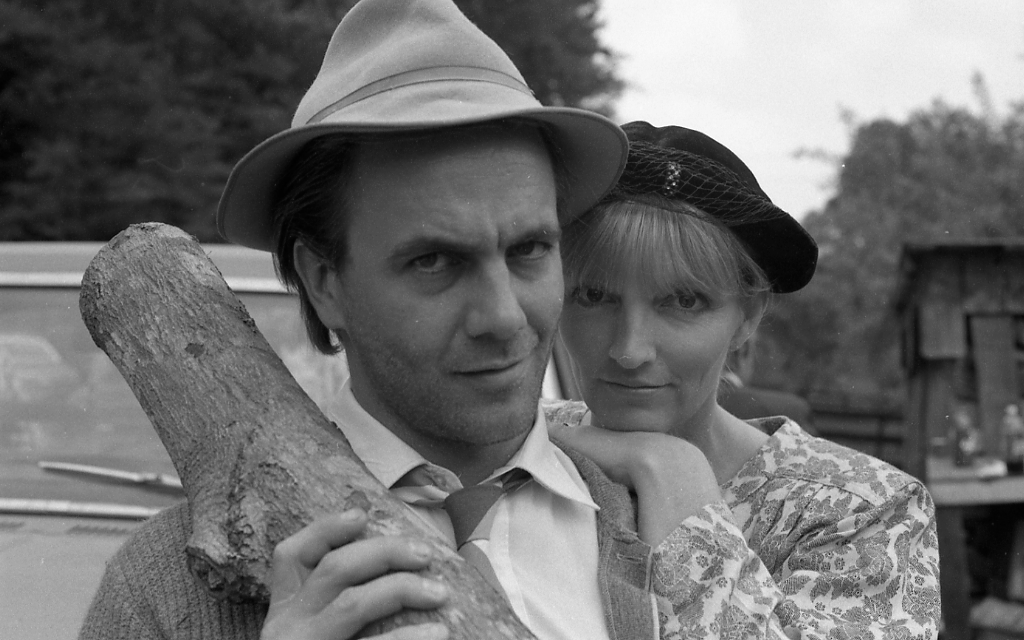
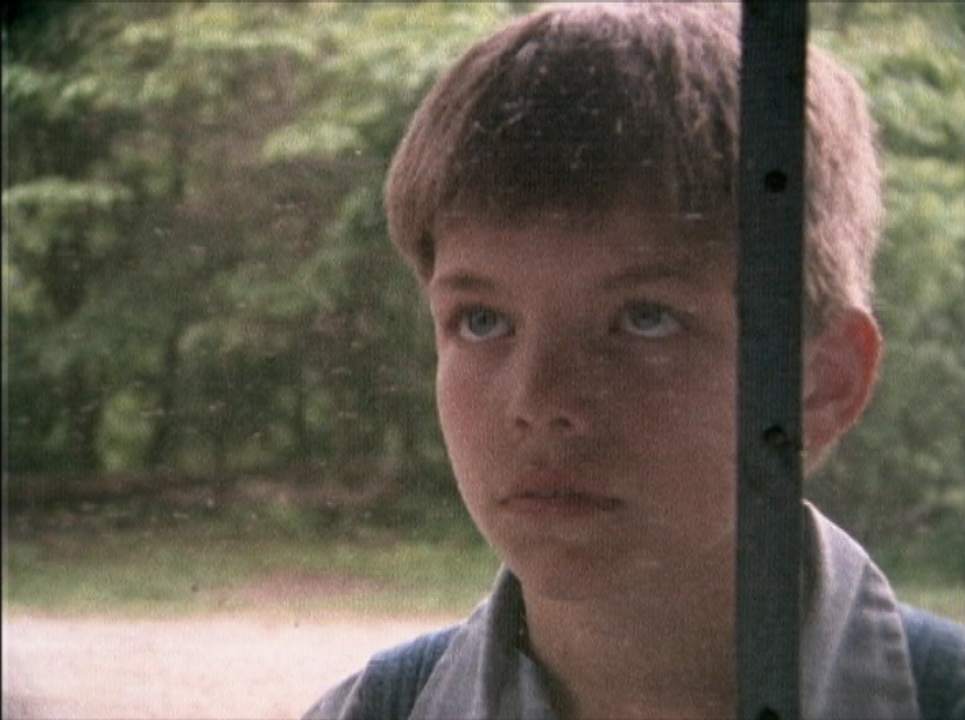
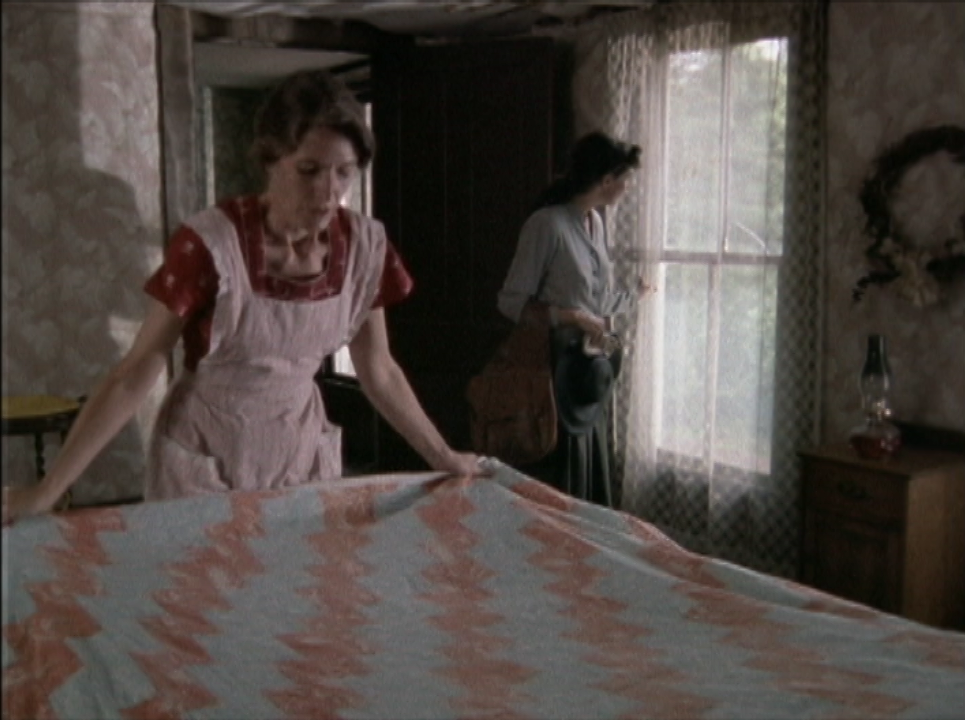
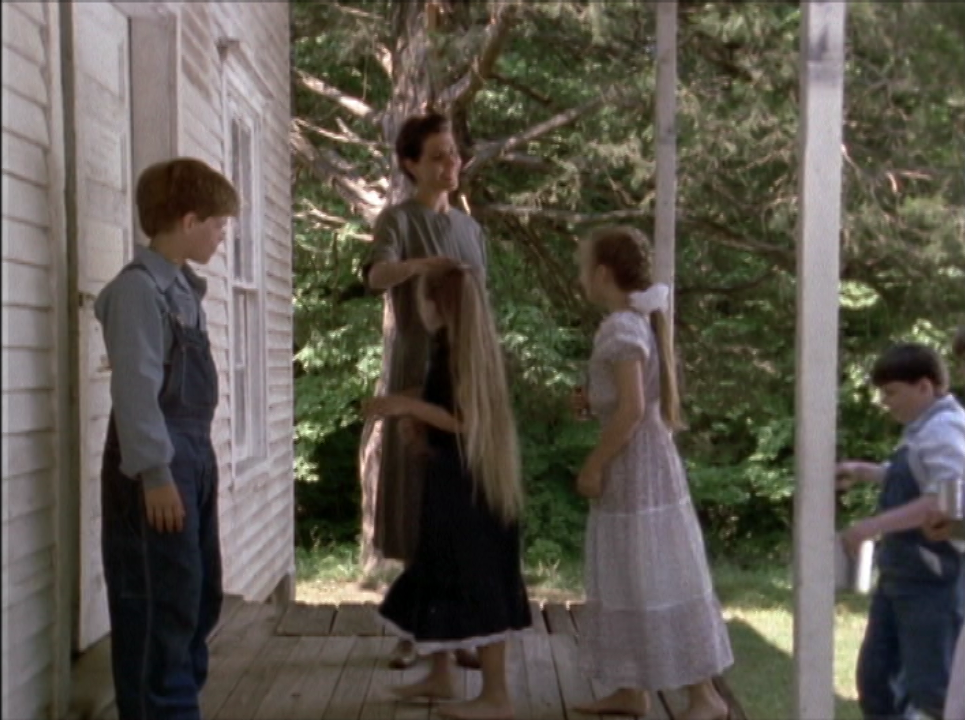
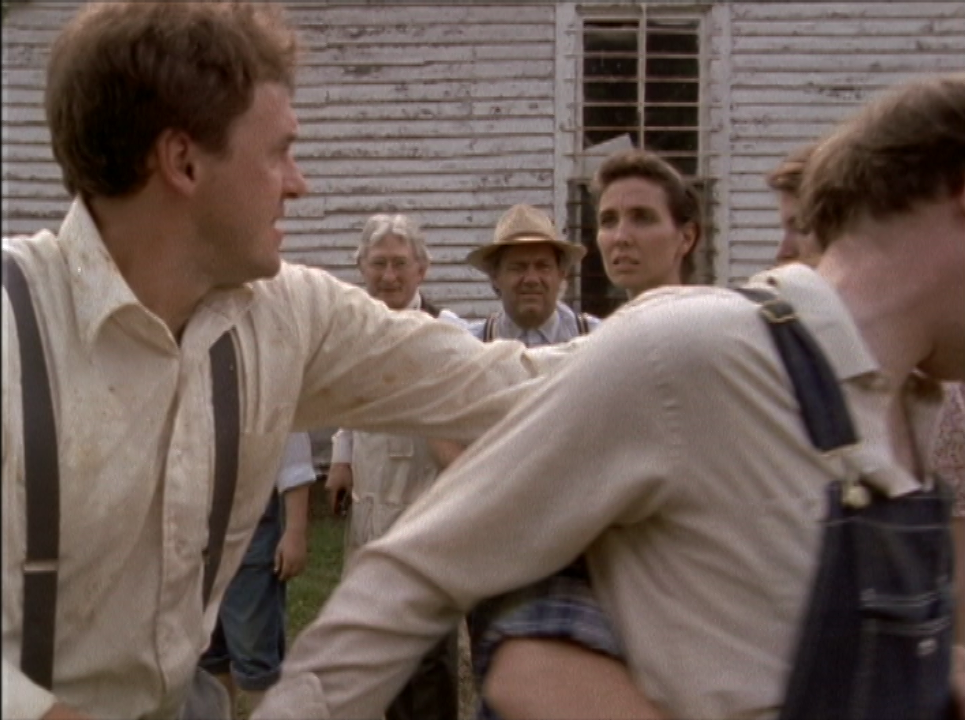
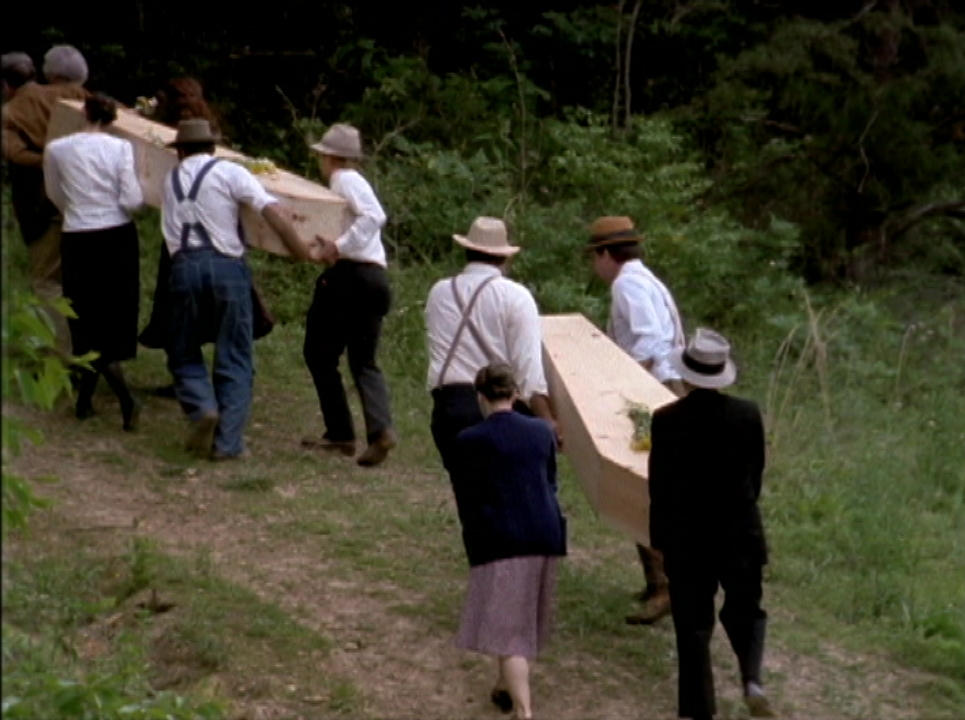
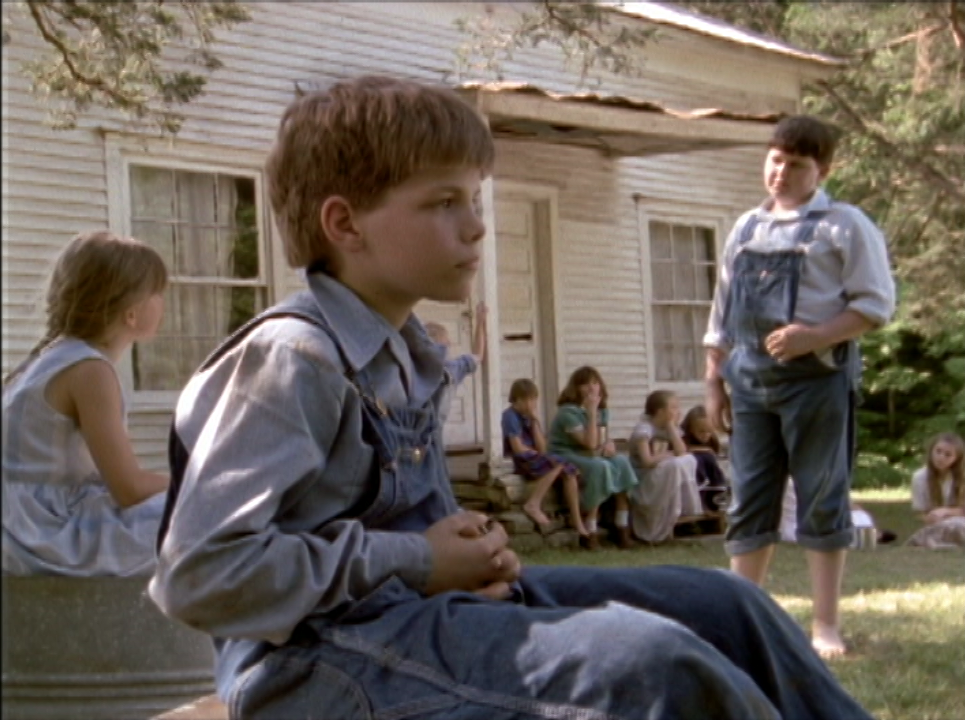
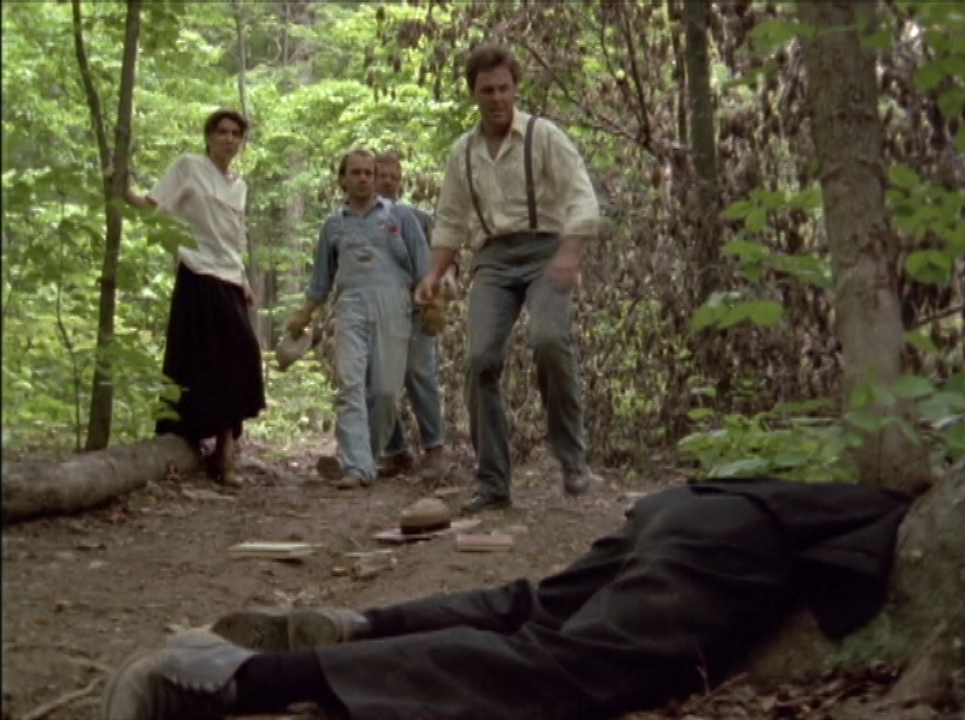
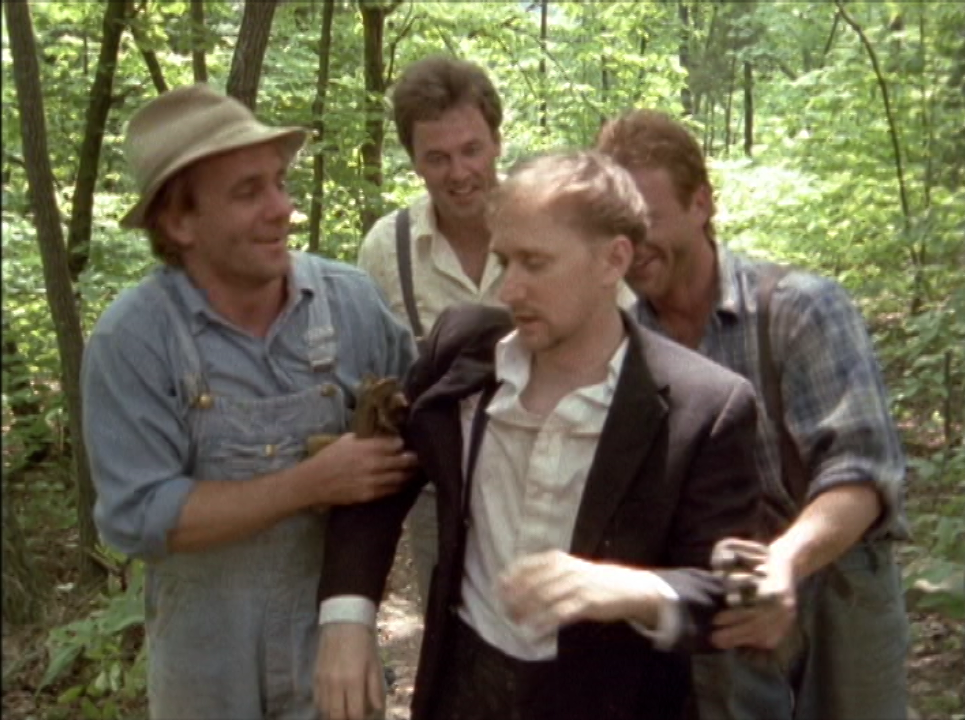
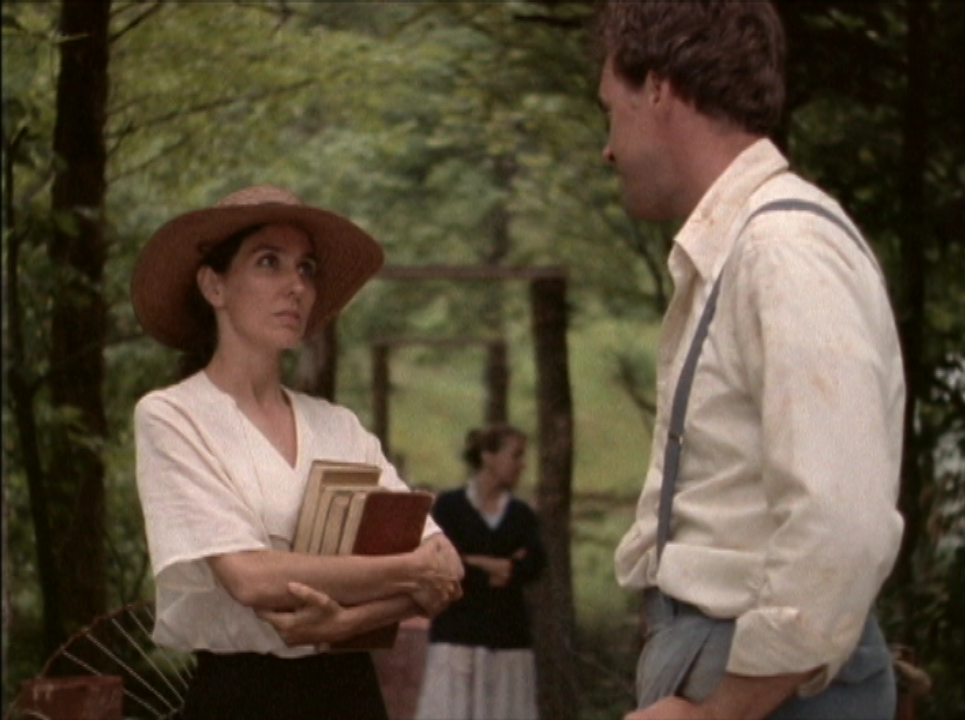
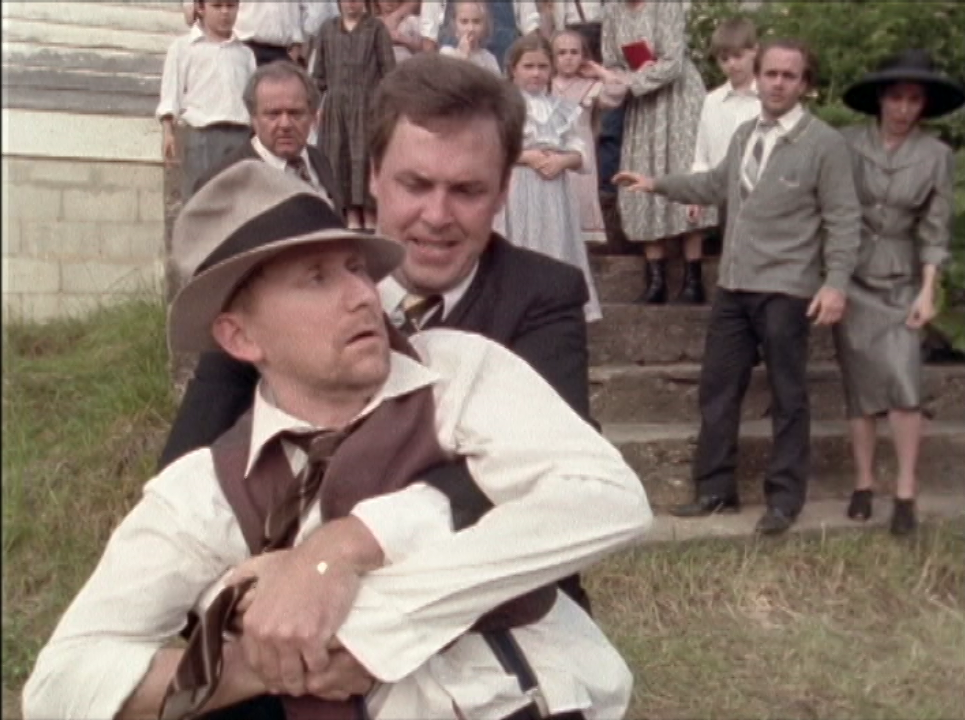
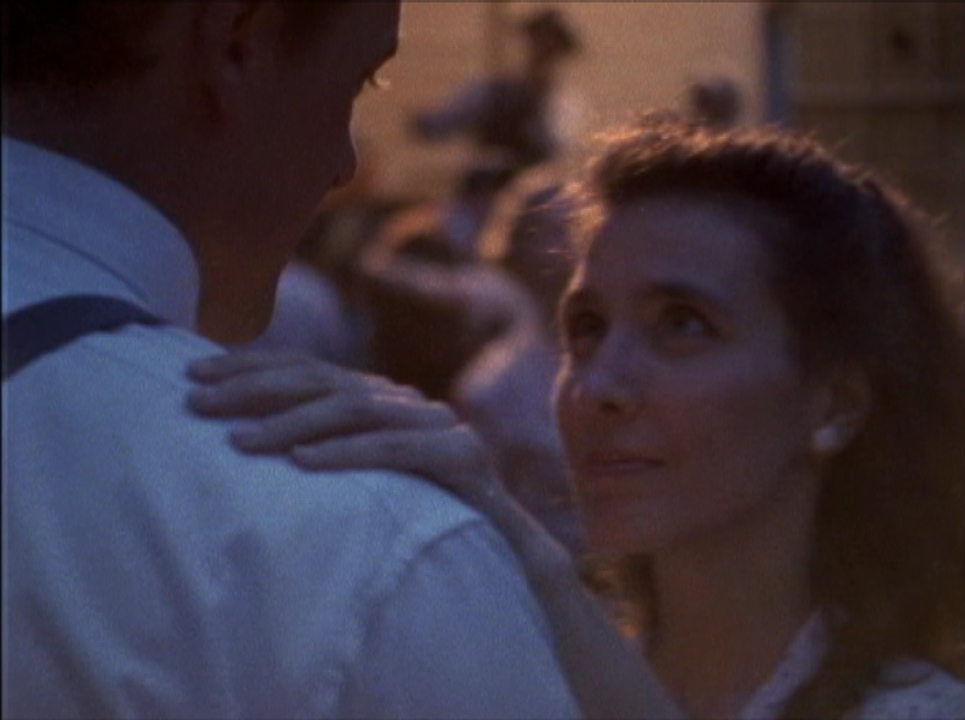
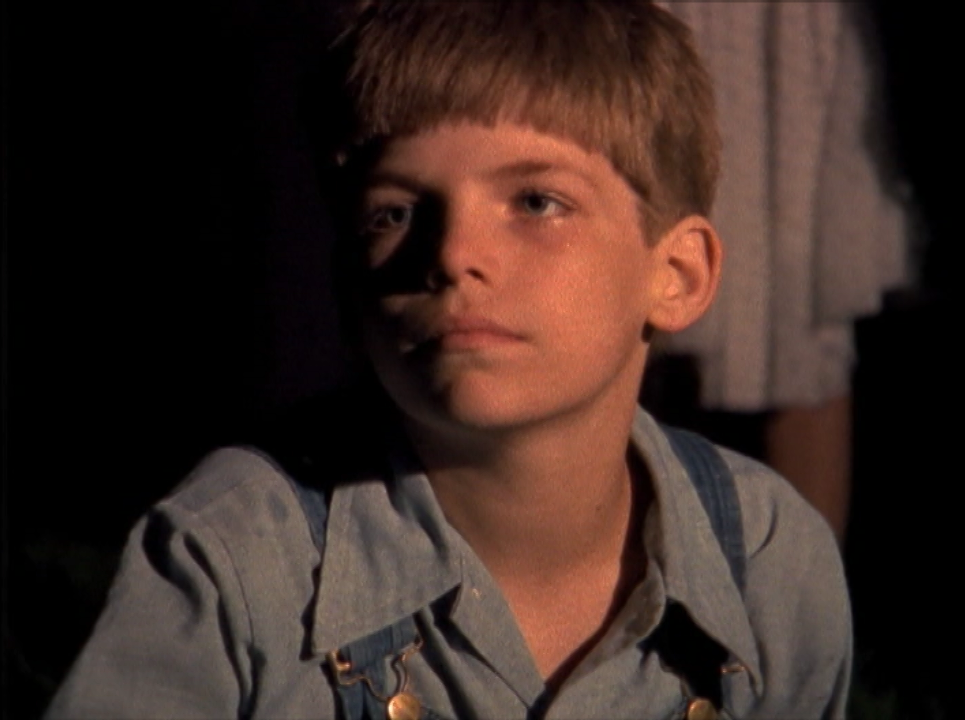
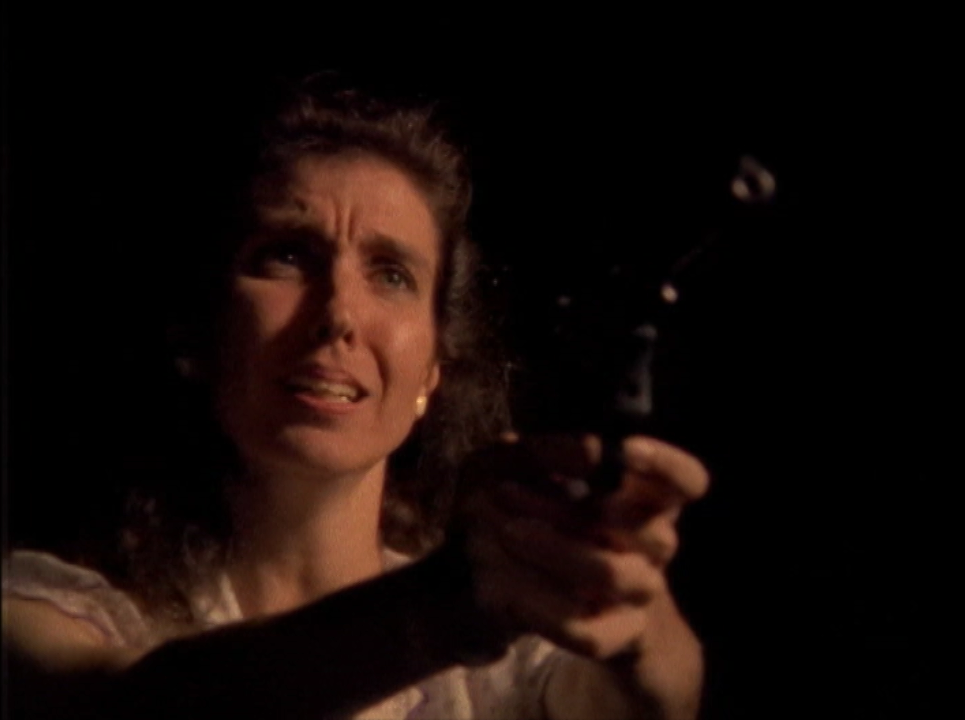
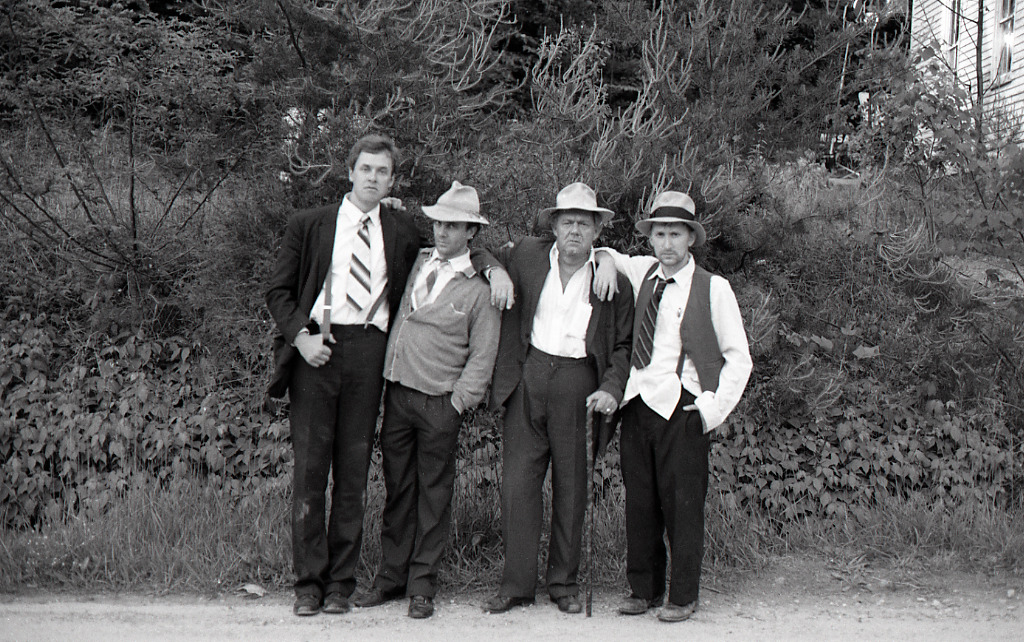
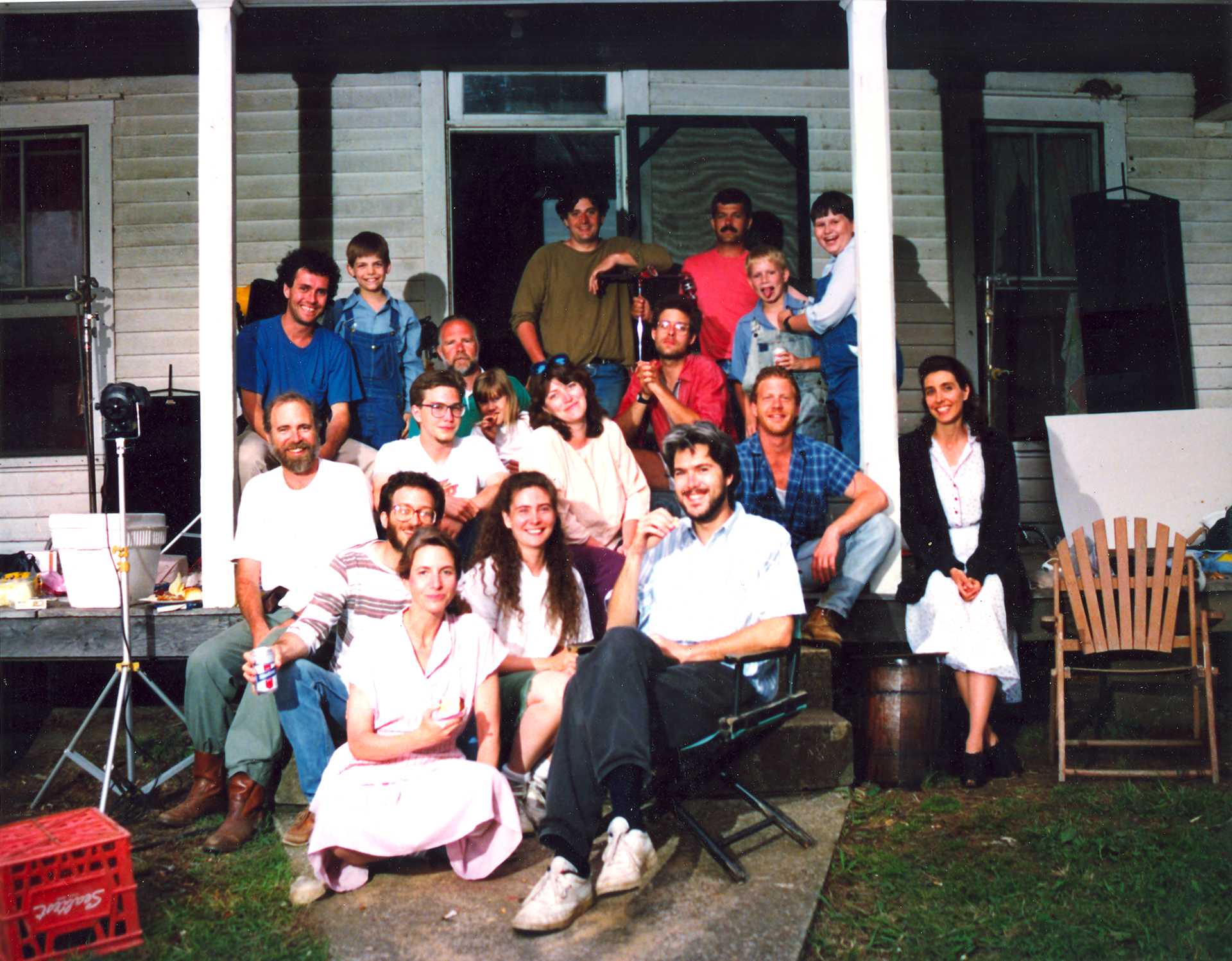
DVD includes
Borderlines digitally remastered video and sound
English Subtitles for hearing impaired
Stereo and 5.1 Surround Sound audio
Joey Learns to Fly, animated short by Ed Counts
Interview of Lynwood Montell, author of “Killings,” by Michael White
Multiple recordings of the song, "Borderlines," by Howard Perdue
Recordings of the Troxell Brothers, Bobby Clark, and Clyde and Marie Denney
Follow the Movie: Premiere, Screenings, Film Festivals, and Awards
Slideshows and Digital Stills - Children Casting, Location Scouting, On the Set, Newspaper Articles, and Movie Stills
Digital Copies - Screenplays, Storyboards, Shooting Schedule, Script Supervisor Logs, Posters, Notes from the Director, Photographs and Study Guide
Watch the Storyboards with the Movie
Audio Commentary by Jeff Lomax & Ron Schildknecht
Some content requires a computer with a DVD drive to access
Screenings
1994 Kentucky School Media Association Jesse Stuart Award
The Telluride Independent Film and Screenwriters Festival
Sinking Creek Film/Video Festival
North Carolina International Film & Video Festival - Certificate of Merit
Louisville Film and Video Festival - Merit Award
Kentucky Educational Television
Jesse Stuart Media Award, 1994, Kentucky School Media Association
The Telluride Independent Film and Screenwriters Festival
Sinking Creek Film/Video Festival
North Carolina International Film & Video Festival - Certificate of Merit
Louisville Film and Video Festival - Merit Award
Kentucky Educational Television
Jesse Stuart Media Award, 1994, Kentucky School Media Association
Press
20th anniversary screening of "Borderlines" is July 23
Melodie Phelps
The Wayne County Outlook/ July 12, 2011
Melodie Phelps
The Wayne County Outlook/ July 12, 2011
It's hard for Jeremy Catron to believe that it's been more than 20 years since he participated in the production of "Borderlines," a movie that was shot entirely in Wayne County. But the years have not diminished the experience for Catron, who was among four local children with speaking roles in the movie.
"Boy, does 20 years go fast," said Catron. "To think that people still talk about ‘Borderlines' and continue to show so much interest after all this time makes me feel like I am a part of something special. I thought that it was something that most people had forgotten about, but given all this interest 20 years later it's clear that it is an important part of our history."
Catron had a chance to reflect about his experiences on the set recently, as preparations are made for a local screening of the 20th anniversary DVD edition of "Borderlines." The movie will be shown at the historic Wayne Theatre on Saturday, July 23 at 6 p.m. Director Ron Schildknecht will be present at the screening.
Schildknecht became very familiar with Wayne County back in 1990, as he and crew members came here to shoot the movie. And it was big news in Monticello as well, with The Outlook covering various aspects of the production. Stories covered everything from casting to the action at each film location.
Besides the major roles played by local children, there were also many local folks who were extras or the movie. And local musicians Clyde and Marie Denney provided music for "Borderlines."
Set against a background of farming, saw-milling and moonshining activities during the Depression, the 48-minute dramatic film focuses on a small portion of the Cumberland Plateau along the Kentucky- Tennessee border. Local historical and social conditions, beginning with the Civil War, had created an atmosphere in which violence became an acceptable method of handling disagreements.
But an outsider, schoolteacher Larlee Sanders sent in from the county seat, the deadly behavior could only be considered murder.
Although Larlee gradually solidifies relationships with members of the community—including Cilla Hatcher, her matter-of-fact landlady, Calvin Jones, a sawmill worker, and her quiet pupil Ought Dobbs—she is reluctant to accept their community's way of living and dying.
One night at a box supper, the familiar combination of moonshine, weapons, and violent tempers erupt, and Larlee finds herself in the middle. She is forced to accept, reject, or in some way attempt to change a deep embedded social behavior.
Filming was done in May of 1990 in various communities, including Cooper, Slickford and Jennings Hollow. But before the cameras rolled, local auditions were held at Monticello School, where about 40 children participated.
Catron, who was 13 at the time, was one of the ones chosen for a speaking role. He played the part of Truman Dillard.
"The experience itself was anxiety-provoking initially, but after we had all been there it just seemed normal like we'd been doing it for years. Not that I'm saying I was good at it," said Catron.
Catron said this was one of the most educational events of his life.
"Getting to see the process of making a movie and how they developed the scenes is a once in a lifetime experience. The cast and crew were great about sharing tips and tricks of the trade. We had a lot of fun."
Catron recalls that Jeremy Lomas, also known as Doc, was really funny, and was among cast members who helped keep the children entertained while they waited for the next scene.
"I can honestly say that I was always interested in what was going on and there was never a dull moment. We would either be acting, watching the scenes we weren't in or sitting around talking and joking,"stated Catron.
Catron said he and other cast members were given a VHS copy of the movie and he has watched it a few times. He said he probably hasn't seen it in 10 years or so, but he is looking forward to the screening next weekend, which he and his wife will attend.
Schildknecht said that DVD is the perfect medium for re-releasing "Borderlines."
"The digital age of filmaking has allowed us to do a number of enhancements to the film," he said. "First, we had both the picture and sound completely remastered digitally. Although this is a costly process, the improvement in quality over the previous VHS release is tremendous."
He continued, "We also added more music to the soundtrack, courtesy of Clyde and Marie Denney. Second, DVD's allow you to enhance the viewing experience with the addition of special features, such as photographs, other related short films, commentary, music, newspaper articles, and storyboards, just to name a few. The film was so embraced by the local community that we wanted the DVD to be a celebration of our time together 20 years ago."
Special features of the DVD include English subtitles for the hearing impaired, audio commentary and a directory interview and notes, and an interview with Lynwood Montell, who wrote "Killings"
which inspired the movie. It also includes multiple recordings of the song, "Borderlines" by Howard Perdue, as well as recordings by the Troxell Brothers, Bobby Clark and Clyde and Marie Denney.
There is a slideshow and still photos of the children's casting, location scouting, on the set, as well as newspaper articles and movie stills. Some of the content requires a computer with a DVD drive to access. DVD's will be available for purchase at the screening and online at ronschildknecht.com.
The screening is fee and open to the public, however tickets are required. They are available at any Monticello Banking Company location.
Film Review
Kathy Akey
School Library Journal / July, 1994
Kathy Akey
School Library Journal / July, 1994
In this video drama, viewers get a slice of life in rural Tennessee in the late 1930's where moonshine and borderline feuds leading to violence and death are an everyday occurrence. The story begins with the arrival of the new school teacher who is appalled at the drinking and killing, and more so at the casual acceptance of both. One of her students, a quiet, interspective boy, observes Miss Sanders and her reactions to the local culture. Yet he too, becomes a victim of violence permanently maimed in a shooting. And so the cycle continues as the drama ends with the boy, now middle aged and limping, talking about how things really haven't changed in the area. The acting and settings are superbly done. Students, while enjoying the program as a piece of fiction, also should be able to relate the problems of this rural area in the 30's to the problems of indifference to alcohol and violence in today's world. Useful in secondary classes in social problems as well as U.S. history.
Film Review
Nancy McCray
Booklist / August, 1994
Nancy McCray
Booklist / August, 1994
In this thought-provoking dramatization, Ought Dobbs is the adult narrator who recollects Miss Larlee Sanders' arrival In his small Kentucky town to teach school. As a well-behaved, withdrawn 11-year-old in 1935, Ought knows folks wonder if the pretty teacher will complete the school term - her predecessor didn't. When an inebriated man shoots Ought's father at a school picnic, the youngster pulls out a gun to retaliate, much to the surprise of his teacher, who comes from a place where people settle problems without guns. Although an outsider, Miss Sanders finds herself drawn into the melee and, contrary to her beliefs, almost fires at the murderer. A peaceful, wooded area is the setting where the issue of violence is explored in an involving story with fine performances. A stimulating discussion-starter about how to bring about a change in attitude toward conflict.
Film Review
Ed Counts
Choice: Program Guide for WKYU-TV / May, 1993
Ed Counts
Choice: Program Guide for WKYU-TV / May, 1993
"Borderlines," a dramatic film set in the lush mountainous region along the Kentucky-Tennessee border south of Wayne County Kentucky, was produced, directed, and edited by Louisville native and WKU Media Services/Center for Teaching and Learning staff member Ron Schildknecht. The work was inspired by the book Killings: Folk Justice in the Upper South, by Dr. Lynwood Montell, Department Head of Modern Languages and Intercultural Studies at WKU. The screenplay was written by Rebecca Reynolds of Murray Kentucky, whose credits include several features, network television scripts, and numerous plays.
Although the story in "Borderlines" is not a literal interpretation of any particular incident in Killings, the characters and events express and reflect life, and death, in this rugged and isolated region. From the Civil War era to the 1930s, historical and social conditions combined with the region's isolation to create a violent system of folk justice often characterized by homicidal acts.
Upon arriving in the remote fictional community of Winton Ford in the mid 1930s, the new school teacher, Larlee Sanders played by WKU graduate Kathyren Ballard of Murray, soon discovers that there is, in Montell's words, "an unconscious acceptance of violence in the culture." As she gets to know the people of Winton Ford, she becomes close to them, even almost becomes one of them, yet there is always the threat of violence. Her courtship with local sawmill worker, Calvin Jones, intensifies her inner conflict. While writing Killings, Montell recorded the comments of a man who said, "The life you grow up with becomes a habit." In a similar vein in the film, Calvin tries to explain this notion to Larlee. "When people ain't got much, they have to protect what they got."
Schildknecht's controlled and deliberate direction along with Peter Pearce's cinematography portray the region with authenticity and its people with dignity. The episodes of unexpected violence as a way of settling disputes or meting out "justice" are understated, yet powerful in the way Schildknecht incorporates them into the narrative. He does not exploit violence for its own sake and is very careful not to perpetuate the caricature of "feuding hillbillies" so often found in popular culture.
"Borderlines" was shot on numerous and varied locations in and around Wayne County and is cast mostly with Kentucky actors. This includes Sara Morsey, Jeff Lomax and Jim Petersmith of Louisville, Warren Hammack of Horse Cave, and many Wayne County residents. Original music for the film was composed and performed by Nashville songwriter and Wayne County native Howard Perdew.
While he was artist-in-residence at the Louisville Visual Art Association, Schildknecht produced two other films. "The Legend of the Pope Lick Monster" was based on a Louisville urban legend and the documentary, "My Porcelain Past," was about the last business day before the razing of a White Castle restaurant which had been a popular neighborhood gathering spot for over 30 years.
Kentuckian's Film to Have Premiere
Roger Fristoe
The Louisville Courier-Journal / November 22, 1992
Roger Fristoe
The Louisville Courier-Journal / November 22, 1992
"Borderlines," a dramatic film by Kentucky filmmaker Ron Schildknecht, will have its premiere at 7 and 9:30 p.m. Saturday at the Water Tower as a presentation of the Louisville Visual Art Association. The film also will be shown at 3 and 5 p.m. Dec. 5 at Studio Cinema in Monticello, Ky.
Produced from an original screenplay by Rebecca Reynolds of Murray, Ky., "Borderlines" concerns folk justice as practiced in south-central Kentucky through the 1930s. Set in the fictional crossroads town of Winton Ford, the 48-minute film was shot on location in Wayne County, Ky.
The story focuses on Larlee Sanders, a schoolteacher who arrives in Winton Ford from the county seat and is jolted by an incident in which a dispute over some hogs leads to the killing of two men. A local sawmill worker, Calvin Jones, begins a courtship with Sanders, but she is reluctant because she's troubled by his community's unwillingness to discuss the killings or prosecute the killer. The film reaches its climax at a box supper where moonshine and violent tempers lead to a confrontation that finds Sanders caught in the middle with a pistol in her hands. "It's more or less inspired by real people and events," Schildknecht says of the film. "We've tried to capture a sense of the flavor of the history and explore why these things happened." But he's quick to point out that he and his collaborators are "not sociologists and that the real purpose of "Borderlines" is to entertain.
Schildknecht, a former Louisville Visual Art Association artist-in residence whose film credits include "The Legend of the Pope Lick Monster" and "My Porcelain Past," is a media production specialist at Western Kentucky University in Bowling Green.
"Borderlines," he says, was developed in part from research done by Lynwood Montell, a professor of folk studies at Western and author of the book "Killings: Folk Justice in the Early South." The book documents 50 homicides in the Kentucky counties of Wayne and Clinton and in nearby Tennessee.
Schildknecht had decided on the basic plot of having an outsider come into the volatile region when he approached Reynolds about developing a screenplay. She has co-written theatrical films, including "Backfire" (1987) and "Overexposed" (1990).
The pair went to Wayne County for further research. "We talked to a lot of people down there, and Becky took a lot of the stories we heard and synthesized them into a script," Schildknecht says.
The film is cast mostly with Kentucky actors. Sanders is played by Kathryn Ballard, an actress from Murray, who also appears in the soon-to-be-released "King of the Hill," directed by Steven Soderbergh ("sex, lies and videotape") and starring Spalding Gray and Elizabeth McGovern. Jim Petersmith, a Louisville actor with several local stage credits, plays Jones. Sara Morsey, a veteran of the Louisville theater, company Pegasus Rising, has a strong supporting role.
Schildknecht's film also features appearances by several Wayne Countians. "I was a little concerned about how they might respond to something that could put them in a not-so-favorable light," he says. "But their support was incredible."
"Borderlines" will be shown with "Joey Learns To Fly," a five-minute animated film by Ed Counts of Bowling Green. Counts, who also served as production designer on "Borderlines," made 3,249 drawings to create "Joey," a parable about the power of childhood imagination.
This charming and imaginative film, set in the Kentucky-Virginia border country, is a collaboration with writer Errol Hess of Bristol, Tenn., and singer-storyteller Tom Bledsoe of Roadside Theatre in Whitesburg, Ky. It was shown on Kentucky Educational Television on Nov. 9.
Admission to the Louisville screenings of "Borderlines" and "Joey Learns To Fly" is $3.50 ($3 for members of the Louisville Visual Arts Association). Admission to the Monticello screenings is $3.
Borderlines
Visual Art Review / Winter 1992/93
Visual Art Review / Winter 1992/93
On November 28, the Louisville Visual Art Association proudly hosts the world premiere of Borderlines, an original film by Kentucky filmmaker Ron Schildknecht. It will be preceded by Joey Learns to Fly, an animated short film by Ed Counts.
Produced from an original screenplay by Rebecca Reynolds, Borderlines tells the story of folk justice and violent behavior within a community from the point of view of an outsider.
Larlee Sanders, played by actress Kathryn Ballard, is a schoolteacher from the county seat, who is sent to a small Kentucky crossroads community called Winton Ford. Within a week of her arrival, a hog theft dispute leaves two men dead. Larlee is jolted not only by the killings, but by the community's unwillingness to discuss the incident and prosecute the surviving killer. When Larlee must go to town to look in on her aunt, her landlady, Cilla Hatcher (Sara Morsey) wonders if she will return. While departing Larlee witnesses two separate funeral processions leading to the same cemetery.
However, unlike her predecessor, Larlee does return, much to the delight of one her pupils, Ought Dobbs (Garry Anslow, Jr.), who has taken a shine to his new teacher. Her perseverance eventually earns Cilla's respect and their friendship develops.
For a while there is no violence, but other occurrences cause her to question the community's form of folk justice. Once, while lost in the woods, she stumbles over a body, only to discover that Doc Noll (Jeffrey Lomax) had passed out from excessive drinking of moonshine. Later, shots are heard during church service as the Doc and others are engaged in pig racing and drinking just outside.
A sawmill worker named Calvin Jones (Jim Petersmith) begins a courtship with Larlee, who remains reluctant, still unable to accept his community's way of living and dying.
Finally, one night in Winton Ford, all the residents attend a box supper. As the night passes, Larlee and Calvin dance together and Calvin asks her to stay on next term. Although reluctant, she has solidified relationships with members of the town. One such friend is her quiet pupil, Ought, with whom she shares a special dance. Meanwhile at the box supper, the familiar combination of moonshine, weapons and violent tempers erupt, and eventually Larlee fins herself caught in the middle with a piston in her hand and if forced at last to accept, reject or in some way attempt to change a deeply embedded form of social behavior.
Schildknecht is an independent filmmaker, media producer and instructor from Louisville, Ky. A recipient of the 1991 Kentucky Arts Council Artist Fellowship award, his directing credits include The Legend of the Pope Lick Monster (16mm dramatic short), My Porcelain Past (16mm documentary) and other film and video productions screened at festivals and aired on public television and MTV. Schildknecht was a media artist-in-residence with the Louisville Visual Art Association for over four years, where he founded the LVAA Media Arts Center, a facility which provides film and video equipment access, instruction and screenings. He received his Master's Degree in Educational Media and Technology from East Texas State University and is currently a Media Production Specialist at Western Kentucky University.
Ron is director, producer and editor of Borderlines, a 48 minute narrative 16mm film which explores an era of death and violence in south central Kentucky between the Civil War and the 1930's. As with The Legend of the Pope Lick Monster, Borderlines is a fictional film inspired by real people and real stories told by survivors from that era. Borderlines was filmed entirely on location in Wayne County, Kentucky.
Joey Learns to Fly, produced by Borderlines Production Designer Ed Counts, is based on an improvised story told to the children of the animated film's writer Errol Hess. Joey is a young boy who likes to imagine he if flying as he runs down the steep hills around his rural home. Eventually he grows up and believes that he just imagined flying. However one night in the mountains while walking with his little girl Annie, he recalls this skill at an opportune moment.
Borderlines and Joey Learns to Fly can also be seen December 5, 3 and 5 p.m., at Studio Cinema in the Tradeway Shopping Center, Monticello, Ky.
These programs were made possible in part through the generous support of the Kentucky Arts Council, the Kentucky Humanities Council, the KET Fund for Independent Production, the Rowland and Eleanor Bingham Miller Fund, the National Endowment for the Humanities and with the Louisville Visual Art Association acting as fiscal agent. A grant was made possible from the National Endowment for the Arts.
Credits
Produced, Directed and Edited by
RON SCHILDKNECHT
RON SCHILDKNECHT
Written by
REBECCA REYNOLDS
REBECCA REYNOLDS
Director of Photography
PETER PEARCE
PETER PEARCE
Music
HOWARD PERDEW
HOWARD PERDEW
Production Design
ED COUNTS
ED COUNTS
Humanities Advisor
LYNWOOD MONTELL
LYNWOOD MONTELL
Additional Music
BOBBY CLARK
CLYDE & MARIE DENNY
RALPH & CLYDE TROXEL
BOBBY CLARK
CLYDE & MARIE DENNY
RALPH & CLYDE TROXEL
Associate Producers
LYNN BIRKETT
DEBORAH FOSHAG
LYNN BIRKETT
DEBORAH FOSHAG
Production Manager
LYNN BIRKETT
LYNN BIRKETT
Casting
TONY PRINCE
KEITH WAITS
TONY PRINCE
KEITH WAITS
Assistant to Producer
DENISE CAMPION
DENISE CAMPION
Assistant Director
TONY PRINCE
TONY PRINCE
Camera Assistant
RICHARD SCHULER
RICHARD SCHULER
Grip
DARRYL BEEBE
DARRYL BEEBE
Gaffer
DAVE MALTESE
DAVE MALTESE
Sound Recordist
STEUART PEARCE
STEUART PEARCE
Boom Operator
PAT KEELEY
PAT KEELEY
Script Supervisor
HEATHER LYONS
HEATHER LYONS
Production Assistants
SCOTT CROWELL
GEORGE HADEN
BOB MARKWELL
CHIP SEBASTIN
SCOTT CROWELL
GEORGE HADEN
BOB MARKWELL
CHIP SEBASTIN
Art Directors
FRED BENNETT
PHYLLIS FREE
FRED BENNETT
PHYLLIS FREE
Set Builder
STEVE WILLIS
STEVE WILLIS
Wardrope Supervisor
DEBBIE BENNETT
DEBBIE BENNETT
Apprentice Editors
JASON DOUGLAS
CHRISTY HALBERT
TODD SHEEN
JASON DOUGLAS
CHRISTY HALBERT
TODD SHEEN
Catering
JOAN HATFIELD/CUMBERLAND CAKES
DAVID LEWIS/CAPTAIN'S TABLE
SHARON PATTON
MARGIE HANCOCK
JOAN HATFIELD/CUMBERLAND CAKES
DAVID LEWIS/CAPTAIN'S TABLE
SHARON PATTON
MARGIE HANCOCK
Accountant
PENNY LEACH
PENNY LEACH
Legal Counsel
HANK SCHILDKNECHT
HANK SCHILDKNECHT
Fiscal Agent
LOUISVILLE VISUAL ART ASSOCIATION
LOUISVILLE VISUAL ART ASSOCIATION
Equipment
LVAA MEDIA CENTER
DENNY FUREY
MIKE HEATON
VIDEOBRED
LVAA MEDIA CENTER
DENNY FUREY
MIKE HEATON
VIDEOBRED
Music Mix
BILL HULLETT
BILL HULLETT
Sound Mix
JIM LANGWELL / LANCO SOUND
JIM LANGWELL / LANCO SOUND
Title Photography
CLEM FOWLER / FILMCRAFT
CLEM FOWLER / FILMCRAFT
Negative Cutter
TERESA DABBS
TERESA DABBS
Print by
CINEFILM
CINEFILM
Funded in part by
KENTUCKY FILM AND VIDEO PROJECT
NATIONAL ENDOWNMENT FOR THE ARTS
ROWLAND AND ELEANOR BINGHAM MILLER FUND
KENTUCKY EDUCATIONAL TELEVISION
KENTUCKY ARTS COUNCIL
KENTUCKY HUMANITIES COUNCIL
SOUTHEAST MEDIA FELLOWSHIP PROGRAM
KENTUCKY FILM AND VIDEO PROJECT
NATIONAL ENDOWNMENT FOR THE ARTS
ROWLAND AND ELEANOR BINGHAM MILLER FUND
KENTUCKY EDUCATIONAL TELEVISION
KENTUCKY ARTS COUNCIL
KENTUCKY HUMANITIES COUNCIL
SOUTHEAST MEDIA FELLOWSHIP PROGRAM
Larlee Sanders
KATHRYN BALLARD
KATHRYN BALLARD
Calvin Jones
JIM PETERSMITH
JIM PETERSMITH
Ought Dobbs
GARRY ANSLOW, JR.
GARRY ANSLOW, JR.
Odell Dobbs
WARREN HAMMACK
WARREN HAMMACK
Mrs. Williams
BRETON FRAZIER
BRETON FRAZIER
Mrs. Washam
JEAN MILLER
JEAN MILLER
Cilla Hatcher
SARA MORSEY
SARA MORSEY
Mr. Hatcher
CHARLIE HUNTER
CHARLIE HUNTER
Louis Hatcher
JUSTIN LESTER
JUSTIN LESTER
Annabeth Hatcher
ASHLEY GAINES
ASHLEY GAINES
Truman Dillard
JEREMY CATRON
JEREMY CATRON
Doc Noll
JEFFREY LOMAX
JEFFREY LOMAX
Reese Boyd
ROBERT VALENTINE
ROBERT VALENTINE
Frank
TOM LUCE
TOM LUCE
Worker
STEVE WILLIS
STEVE WILLIS
Brother Emory
BLAKE BARKER
BLAKE BARKER
Musicians
CLYDE TROXEL
RALPH TROXEL
CLYDE TROXEL
RALPH TROXEL
Girl on Bridge
MINDY BROWN
MINDY BROWN
School Children
ELIZABETH CARROLL
JANE CONNER JONI CRABTREE
DEANNA DOBBS
KIMBERLY LESTER
LENEA NEWSOME
ELIZABETH WEINTRAUT
ELIZABETH CARROLL
JANE CONNER JONI CRABTREE
DEANNA DOBBS
KIMBERLY LESTER
LENEA NEWSOME
ELIZABETH WEINTRAUT
Mrs. Boyd
HATTIE EDWARDS
HATTIE EDWARDS
Pallbearers
DOUG BLEVINS
FRANK CARBONE
CAROL ANN COAL
DWIGHT DOBBS
GINA TEDESCUCCI
DOUG BLEVINS
FRANK CARBONE
CAROL ANN COAL
DWIGHT DOBBS
GINA TEDESCUCCI
Reluctant Girl
LYNN BIRKETT
LYNN BIRKETT
Older Ought
JIM CABRAL
JIM CABRAL
Voice of Older Ought
BEN ALLGEIER
BEN ALLGEIER